EU funds saunas, sport and dance in name of just transition

People participate in the annual European Sauna Marathon in Otepaa, Estonia March 1, 2025. REUTERS/Ints Kalnins
What’s the context?
Critics raise alarm about EU's Just Transition Fund, fearing fraud, misuse and a green light for flimsy projects.
- Billions earmarked to wean EU off fossil fuels
- Critics question lack of project oversight
- Auditors plan to inspect Just Transition Fund
PARIS - The European Union is funding festivals, axe-throwing, saunas and sport camps with money earmarked to wean energy workers off fossil fuels, spawning fears that billions of euros are going to waste - or worse.
Several European politicians, climate NGOs and corruption watchdogs have raised alarm bells about the EU's flagship Just Transition Fund (JTF), set up to support energy workers and their communities move away from polluting industries.
"We don't know how the money is being spent by member states. That is not right. It should be public," said Monika Hohlmeier, an MEP for the European People's Party and vice chair of the European Parliament's budgetary control committee.
In response to a freedom of information request sent by Context, the European Commission said it was unable to provide a comprehensive list of the fund's projects as it did not hold such information.
The European Commission said it does not know which projects or companies benefit from the 26.7-billion-euro ($31-billion) Just Transition Fund (JTF) that launched in 2021 to help EU member states shift away from dirty fossil fuels.
So far, the JTF has allocated more than 11 billion euros among the EU's 27 states: funding hydrogen production in coal-rich Poland, restoring Finnish peatlands, backing renewable energy in Greece and developing green steel in Romania.
Under a "shared management" model, members can spend JTF money as they wish so long as they are "enabling regions and people to address the social, economic and environmental impacts of the transition towards a climate-neutral economy".
There is no onus on countries to inform the EU authorities of their projects - either before they are financed or after any implementation, the Commission said in its response.
Yet critics say this lack of transparency and accountability means EU money could be misused, be it through corruption, fraud or by financing projects that prove ineffective or irrelevant.
Launched by Commission President Ursula von der Leyen to ensure "no one and no region is left behind" in the shift to net zero, the fund is intended to support workers and communities reliant on coal mines, steel factories and peat fields.
Europe's ambitious 2030 emissions reductions target could kill nearly half a million jobs, with the coal sector set to halve in the next five years, according to an EU assessment.
The MEP Hohlmeier said the lack of transparency means the JTF could repeat the errors of the 2021 EU pandemic recovery fund, which was riddled with fraud and failure.
Before the JTF was even launched, the European Court of Auditors - which aims to improve financial management - said it had significant flaws and lacked a due focus on delivery.
For instance, it found that member states with similar needs could hypothetically win equal funding then "one could commit to – and succeed in – closing down carbon-intensive operations, while another could just downsize them, even temporarily."

An excavator prepares oil shale for the power plant in Auvere, Estonia February 28, 2023. REUTERS/Ints Kalnins
An excavator prepares oil shale for the power plant in Auvere, Estonia February 28, 2023. REUTERS/Ints Kalnins
Vincent Bourgeais, a spokesperson for the European Court of Auditors, said it would audit the fund next year.
"Rest assured that we will have a close look at it and that we will do our job to safeguard the EU’s financial interest and ensure that good use is being made of taxpayers’ money," he said.
Some JTF projects are already coming under scrutiny.
Ida-Viru, a county in northeastern Estonia that is home to large deposits of shale oil, has spent part of the 354 million euros it was earmarked under the JTF to pay for a sauna festival, an axe-throwing centre and a dance marathon, the Ministry of Finance told Context.
Other JTF projects include a nature spa hotel, a factory for laminated wood products, a water sports centre, a digital music library and a children’s ice hockey summer camp.
"You have to wonder if this is money being well spent, that it will really replace those jobs being lost," said Brice Böhmer, climate and environment director at Transparency International, a global anti-corruption nonprofit.
Böhmer urged the EU to ensure "full transparency" over who gets what money and how it is spent to identify any conflicts of interest, prevent misuse and maximise impact.
Estonia's Ministry of Finance defended the projects, saying the money diversified economic activity away from fossil fuels, which account for almost half of Ida-Viru's economic output.
The projects let residents "reflect on … a more environmentally sustainable future" and strengthen cultural heritage and social cohesion, said a ministry spokesperson.
Such initiatives are "clearly not a misuse of money... but a necessary step to ensure a just, people-centred, and sustainable transition to climate neutrality," the spokesperson added.
A spokesperson for the Commission did not comment on Estonia’s projects specifically, saying it only has an "overview" of spending then monitors implementation later.
Funding can be cut if programmes do not achieve 65% of their targets, and member states must negotiate their plans to shape and direct projects with the Commission before winning funds.
This reporting was supported by Journalismfund Europe and the Arena Climate Network.
($1 = 0.8603 euros)
(Reporting by Peter Yeung; Editing by Lyndsay Griffiths and Jack Graham.)
Context is powered by the Thomson Reuters Foundation Newsroom.
Our Standards: Thomson Reuters Trust Principles
Tags
- Adaptation
- Fossil fuels
- Net-zero


















